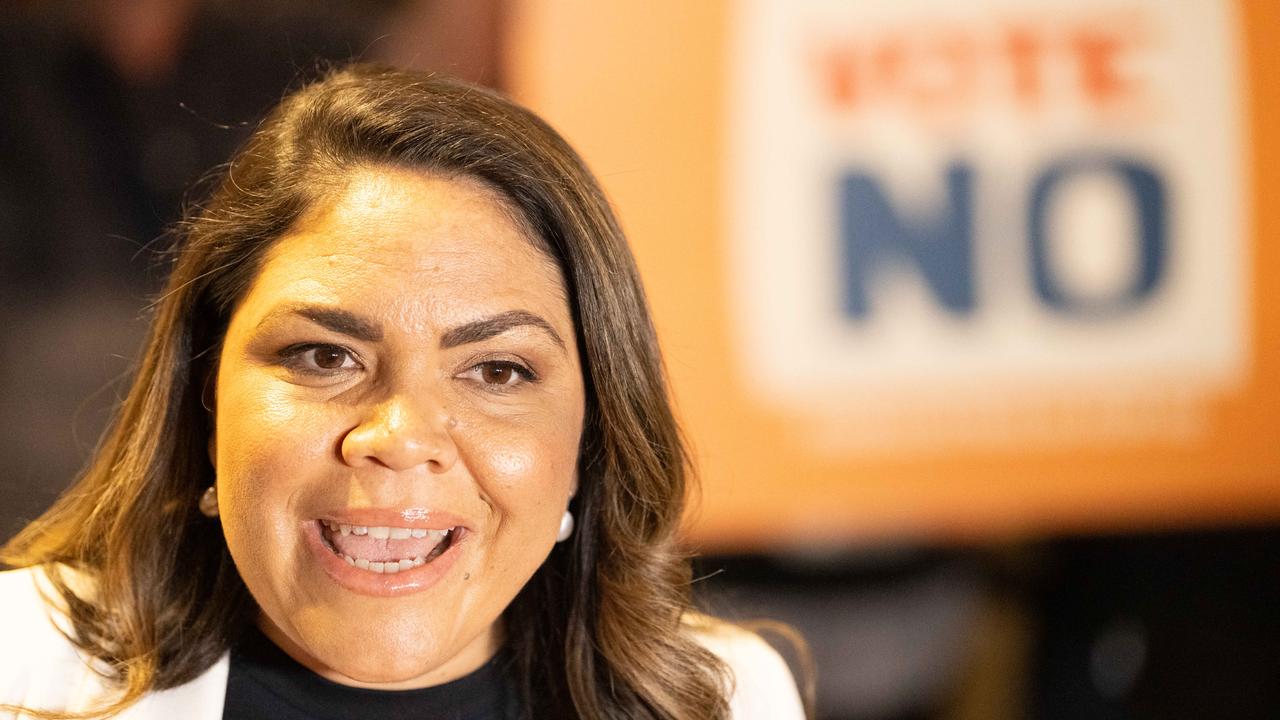Jacinta Nampijinpa Price has said the idea of reconciliation has been “weaponised” in the aftermath of the Voice, calling the cancellation of January 26 celebrations “un-Australian” as leaders break their silence on the next steps for Indigenous rights in the new year.
The conservative senator, who led the No campaign for the Voice to Parliament referendum spoke out after keeping a relatively low profile following the defeat of the referendum on October 14.
A strong opponent of the change the date movement, Senator Price joined Opposition leader Peter Dutton’s calls to condemn a recent decision made by Australia’s British High Commissioner to cancel a gala event on January 26 due to “sensitivities” around the divisive nature of the date.
“I think it’s a put down to put an end to any celebrations on Australia Day. I think we have to get back to being proud of what it means to be Australian,” she said.
She argued talks of reconciliation post-Voice vote suggested “non-Indigenous Australians need to conform to the agenda of those pushing what they think reconciliation is.”
“As a product of reconciliation myself, I can tell you very much so that reconciliation is not dead, and I think I think the priorities need to shift to supporting our most marginalised Australians as opposed to pie-in-the-sky concepts like reconciliation,” Ms Price said on Tuesday.
“For me, it’s about improving lives, saving lives, focusing on who our most marginalised are. And you know, they’re not people with a university degree evidently, they are people in remote communities.”
In the months after the referendum defeat, pro-Indigenous Voice advocates have begun to speak out publicly over the loss.
Voice architect Professor Megan Davis told reporters from the Australian Financial Review on Monday that the grassroots Indigenous rights movement would continue, despite mourning communities believing the opportunity for reconciliation was “dead.”
Former Affairs Minister Ken Wyatt said despite the rejection of a Voice efforts to close the gap of Indigenous advantage in the coming year should be approached in a “pragmatic” way.
The government has yet to confirm how it might pursue the other parts of the Uluru Statement, stating that it would consult Indigenous leaders before introducing any new policies. It has already allocated $5.8 million to “commence work on establishing an independent Makarrata Commission to oversee processes for agreement making and truth-telling”.
A spokesperson for Indigenous Affairs Minister Linda Burney said the minister’s priorities in 2024 would focus on issues identified by Aboriginal and Torres Strait Islanders, including health, education, jobs, housing and justice.
This includes new funding for justice reinvestment to reduce incarceration rates, investment into basic services in remote areas, and replacing the “failed” remote employment and community development services program.
